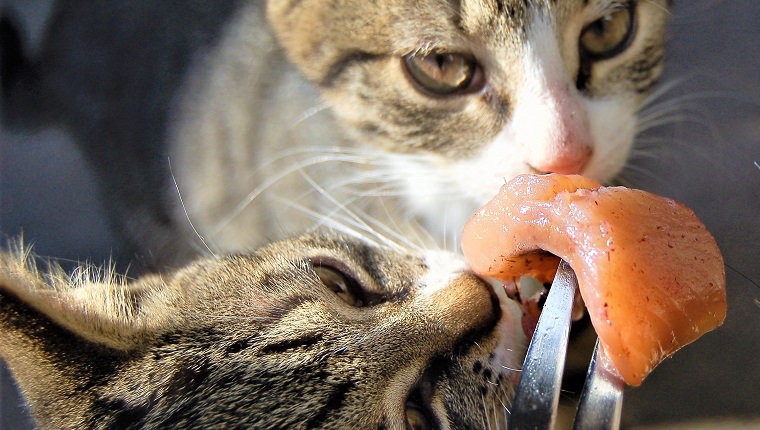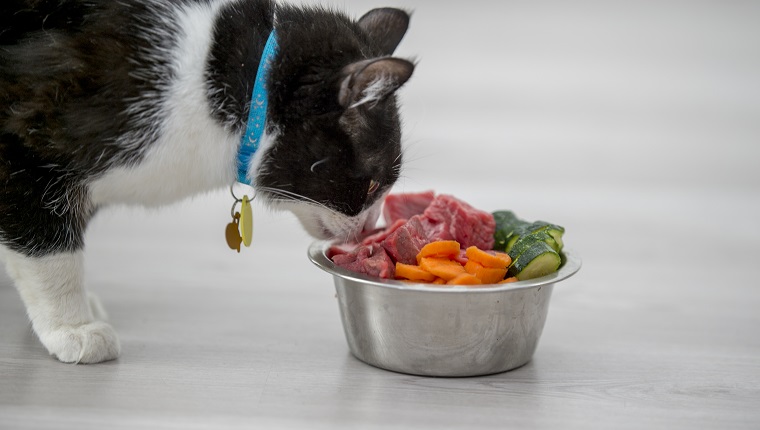You might have heard people refer to cats as obligate carnivores, but what exactly does that mean? And how does it affect what a cat can eat?
Put simply, being an obligate carnivore means that a cat needs to consume meat in order to survive. Eating meat is a biological need for a cat, so it follows that the majority of a cat’s diet must come from meat.
Due to the makeup of a cat’s digestive system, they are equipped to eat meat, but they would struggle on an all-plant diet. As cats are obligate carnivores, the ASPCA does not recommend putting any cat on a vegan diet. In their words:
“Feeding a cat a plant-based diet is a lot like feeding a cow a meat-based diet — their digestive system isn’t geared to handle it, and they will not thrive on it.”
As a comparison, while cats are obligate carnivores and must eat meat to survive, dogs are omnivores, which means they need a mix of meat and plants to provide their proper daily nutrition.
An Appropriate Diet For Obligate Carnivores
The majority of a cat’s diet should consist of meat protein. Part of the reason why is because the digestive tract of a cat is much shorter than the digestive tract of many other animals, which means that it can digest protein very quickly.
This is why most of the cat foods you can purchase are based around high protein ingredients like chicken, beef, and fish.
Think of it this way: Out in the wild, you might see a cat occasionally chew on a piece of grass or a plant, but the bulk of their food comes from catching animal prey. This is just the way cats are genetically built.
What Happens If A Cat Doesn’t Eat Enough Meat?

If a cat’s diet does not contain enough meat protein, there’s a chance that their body will end up breaking down its own internal organs in an attempt to meet its energy needs.
Additionally, cats need sufficient quantities of the amino acid taurine, which they are unable to synthesize and produce themselves. Taurine is present in meat.
If a cat becomes deficient in taurine, they might develop dilated cardiomyopathy (DCM), a heart condition that can stop supplying oxygen to the body. Insufficient quantities of taurine can also lead to feline blindness.
Can Cats Eat Anything Other Than Meat?
As obligate carnivores, the majority of a cat’s daily diet should come from meat protein. But that doesn’t meant they can’t supplement meat with a small amount of other foods.
Certain fruits and vegetables can be beneficial as a snack or a supplement, including squash, carrots, green beans, and cantaloupe. But it’s important to make sure that non-meat foods don’t make up a large part of a cat’s diet, as they can lead to a range of health issues including gastrointestinal conditions and weight problems.
When it comes to balancing your cat’s diet, consult with your veterinarian if you’re considering adding non-meat foods to daily mealtimes. Your vet can advise you about a safe amount of non-meat foods for your cat.
What do you think about cats being obligate carnivores? What sort of meat proteins does your cat love the most? Tell us your thoughts in the comments section below!




